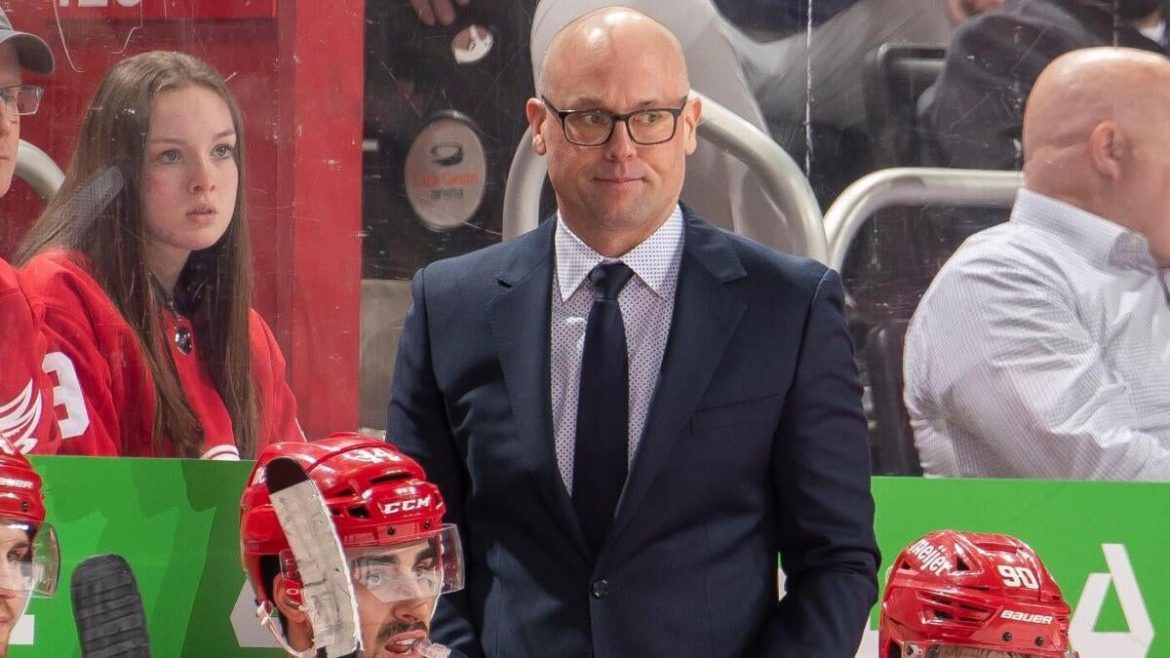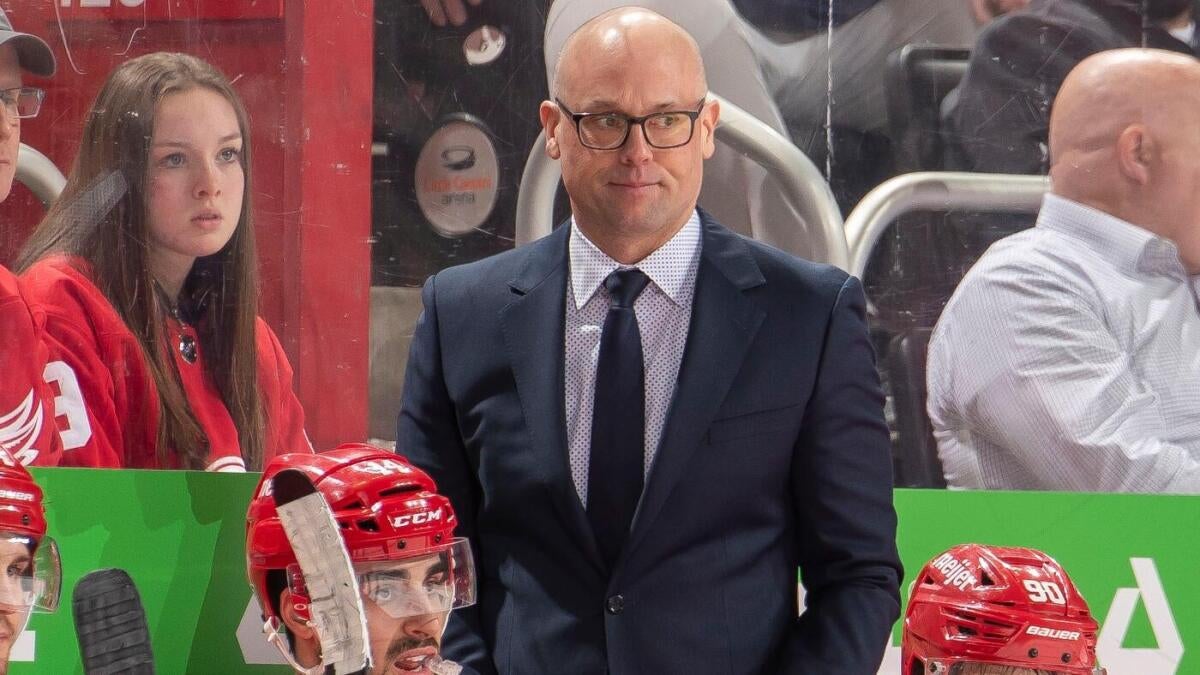The Chicago Blackhawks’ recent decision to appoint Jeff Blashill as their new head coach marks a significant chapter in the franchise’s ongoing rebuild. This appointment not only represents a fresh start for Blashill but also embodies the Blackhawks’ hope that this second chance for the 51-year-old coach will yield markedly different—and more successful—results than past NHL coaching stints. A detailed exploration of the circumstances surrounding this hire, Blashill’s coaching resume and skill set, and the expectations from this pivotal move offers keen insights into what lies ahead for both coach and team.
Background: The Coaching Vacancy and the Search
For the Chicago Blackhawks, landing a head coach is about finding someone who can steer the team through a demanding rebuilding phase. Since their last playoff appearance in 2017, the franchise has aggressively worked to restructure its roster and systems. In this context, the coaching role is not simply about short-term wins but also about player development, tactical acumen, and cultural leadership.
Jeff Blashill appears to have emerged as the leading candidate after the Blackhawks explored multiple options. Despite competition from several promising coaches—including in-house prospects and external candidates—the organization ultimately settled on Blashill, whom they see as fitting their current needs. Some reports highlighted that the coaching search process was discreet, narrowing down to a shortlist with a decision finalized soon after.
Jeff Blashill’s Coaching Journey and Experience
Blashill’s NHL coaching journey is defined by his seven-season tenure as head coach of the Detroit Red Wings (2015-2022) and subsequent role as an assistant coach with the Tampa Bay Lightning. His path reflects a mix of challenges, learning, and development:
– Detroit Red Wings Era: Blashill’s time in Detroit was marked by a struggling franchise in flux. The Red Wings transition from a perennial contender to a rebuilding team coincided with his head coaching term. Win-loss results under his stewardship were underwhelming, reflecting roster limitations more than coaching deficiencies. Still, his extended tenure highlights organizational faith in his capabilities and potential.
– Assistant Coach, Tampa Bay Lightning: In the last three years leading up to this hire, Blashill served as an assistant coach with the Lightning—one of the NHL’s most talented and successful teams. This role enriched his experience with high-performing rosters, modern tactical approaches, and championship-caliber expectations. Working closely under Jon Cooper, known as the NHL’s longest-tenured coach, has supplied Blashill with valuable mentorship and insight into elite team management.
– Development of Young Players: A consistent strength attributed to Blashill is his aptitude for cultivating younger talent. His background includes significant stints coaching in developmental leagues and assistant roles focusing on player growth, making him well-suited to integrate the Blackhawks’ pipeline of promising prospects into NHL competition.
Why Jeff Blashill Gets a Second Shot with the Blackhawks
Blashill’s appointment comes with a sense of cautious optimism. Several intertwined reasons underpin why Chicago is entrusting its rebuild and coaching future to him again:
1. Familiarity with Rebuilding Environments
Chicago is undergoing a rebuilding period akin to Detroit’s circumstances during Blashill’s tenure. His firsthand experience managing a team in transition, balancing veteran presence with young talent integration, appeals to a club eager to develop long-term competitiveness rather than chasing instant success.
2. Tactical Evolution and NHL Experience
Following his assistant coaching role with Tampa Bay, Blashill has had exposure to progressive, championship-winning strategies. This exposure should allow him to apply contemporary techniques and philosophies to the Blackhawks, potentially avoiding past tactical pitfalls.
3. Alignment with Front Office Vision
Blackhawks General Manager Kyle Davidson has reportedly met with Blashill during the search, indicating a shared vision for the team’s strategic direction. The trust gained during these interactions suggests that Blashill’s views on player development, game management, and culture-building align with the organization’s ambitions.
4. Coaching Record Contextualized
While Blashill’s record with the Red Wings was not stellar in terms of wins, analysts and insiders recognize that Detroit’s declining roster quality and depth handicapped success. His leadership through adversity conveys resilience and the ability to work effectively under challenging circumstances, qualities valuable in Chicago’s current phase.
Challenges and Expectations for Blashill in Chicago
Though the Blackhawks’ decision carries promise, the realities of this role present significant hurdles Blashill must navigate for his second NHL head coaching tenure to succeed:
– Winning Over a Skeptical Fan Base: Many Blackhawks fans and commentators express reservations about Blashill’s hiring due to his past record and the perception that other coaching candidates might have been more exciting or high-profile. Blashill will need to produce tangible progress and improved results swiftly to gain trust.
– Balancing Player Development and Competitiveness: The rebuild involves integrating young prospects into the lineup without severely compromising competitiveness. Blashill’s reputed skills in developing younger players will be tested, requiring finesse in balancing growth and game-day performance.
– Adapting to Blackhawks’ Roster and Culture: Every team has its unique culture and dynamics. Blashill must adapt his coaching style to the personality and composition of the current Blackhawks roster, including managing veterans and emerging stars.
– Translating Tactical Insights into Wins: Blashill’s recent experiences under Jon Cooper can provide advanced strategies, but applying those effectively in a rebuilding team with roster constraints will challenge his tactical flexibility and game management acumen.
What Jeff Blashill Brings to the Table: Strengths and Potential Impact
– Experience with Young Talent: His history in development leagues and general coaching ethos emphasizes nurturing younger players, matching the Blackhawks’ rebuild strategy.
– Resilience and Longevity: A seven-year NHL head coach tenure is a testament to his durability in a demanding role; he is not prone to panic decisions and builds over time.
– Exposure to Elite-Level Coaching: His assistant role with the Lightning broadens his perspective on successful NHL systems, potentially elevating the Blackhawks’ tactical approach.
– Familiarity with NHL Pressures: Having navigated media scrutiny, locker room challenges, and management expectations in Detroit, Blashill understands the pressures that come with NHL coaching.
Conclusion: A Calculated Gamble for Chicago’s Future
The hiring of Jeff Blashill as the 42nd head coach of the Chicago Blackhawks embodies both a second chance for an experienced coach and a strategic decision by a franchise committed to a long-term rebuild. While his prior NHL head coaching record may lack the gloss desired by some fans and commentators, the layers of experience Blashill brings—blended with insights gained from championship environs and expertise with young talent—offer a foundation on which Chicago hopes to construct future success.
This hire is as much about trust in process and development as it is immediate returns. The Blackhawks are betting that Blashill’s evolution as a coach, combined with the organization’s growing talent base and management vision, will collectively steer the team toward renewed relevance. For Blashill, this role presents both redemption and opportunity—a canvas where lessons learned from previous challenges can translate into leadership that guides Chicago out of a prolonged rebuild and back onto the winning path.
Ultimately, the coming seasons will reveal whether this calculated gamble pays dividends, but the decision underscores the nuanced balancing act of NHL rebuilding efforts: pairing experience, potential, and patience to shape a new competitive identity.





